|
Tyler Nichols is a fiction writer, screenwriter, and Spider-Man super fan. He also runs YouTube channel Zombievictim, which you should check out after reading this interview: What are you working on right now? I’m about halfway through the sequel to The Crimson Summer titled, Crimson High. While the first book was essentially my own version of “Friday the 13th,” this second one is more my version of “Scream.” So, while it’s been a lot of fun to write, I also feel like it needs to be smart and logical, which can be tough since it’s set in an active town, not some camp in the middle of nowhere. Cellphones are currently the bane of my existence. When writing a slasher-style book like The Crimson Summer where no one is safe, were there any characters you still found yourself becoming attached to/rooting for? Going into any slasher, there’s a certain expectation that most of the characters are going to die, so I didn’t have much of a problem offing campers in the first one. Although, I will say that I called an audible on the death of one of the counselors, mainly because I felt it would affect the overall story too much. Plus I really liked her. And in Crimson High, there’s a character death that was really tough for me to write because I like the character so much, and had grown so attached to them. But, their death helps propel the story forward, so it felt essential. Because once you start killing off characters just to do it, you lose any impact. What makes or breaks dialogue for you? What do you love about writing it? As long as it sounds natural, then I’m all for it. Sometimes people can get too robotic with their dialogue and it may be moving the story along, but it’s not presenting the characters in any sort of realistic light. It’s probably why I have a decent amount of swearing in my writing, just because that’s what the people in my life (and even myself) sound like. Dialogue has always stuck out to me and affects all my writing. My prose is very conversational, which can be a bit of a detriment to Grammar sometimes, but I’d rather something come off naturally, than technically correct. I love it because it’s the easiest aspect to write and often feels like it’s just flowing out of me. As long as I know the characters backwards and forwards, I pretty much just have to introduce the scene and then I just transcribe whatever plays out, almost like watching a movie and taking notes. You've got a lot of really cool stuff going on with your YouTube channel including Franchise Chat, Insomnia Theatre, a few short films, reviews, gaming videos—plus you've got more projects coming up. What's involved in creating one of these videos (ex. equipment, storyboards, scheduling)? A lot more work than you’d think. Equipment-wise, I have a DSLR, audio recorder, a boom mic, as well as a crapload of lights. It’s fairly professional for something I film in my bedroom. I don’t storyboard or even really script anything, because I want it to come off as naturally as possible. At most, there’s bullet points set up on my iPad that I can glance at occasionally. I think I’m more charismatic when I can just hit the red button and go. But it also means a lot more editing. That’s where 90% my time goes to. The videos usually take between 5-10 hours to finish, sometimes twice that depending on the length and how many cuts/ancillary footage I have. But mostly I just do videos that interest me, because I think that makes the videos more entertaining, which is the main goal. You’ve hinted at doing something different on your channel for Halloween this year—if you’re able to share any more details? My plan is actually to do horror recommendations for every day of October. That way people can get ideas for stuff to watch, play, or even read to get in the spirit of the holiday. I always love Halloween so doing something special for October is always on my mind. How would you say your experience working in film influences your writing? It’s made me realize that you have to write to your own experience, not what you think will be popular. Hollywood is constantly chasing what’s “in” and I’d rather be the one to start those trends than to follow them. Which is why I do my own thing. The whole reason I wrote my first book is because I always wanted to read a slasher book, but those don’t really exist. It also taught me that reality TV is the devil (though I think I already knew that). Are there any horror tropes you love to hate? Hate that you love? I’m actually a really big fan of tropes in horror because I feel like following them can help you establish the rules, and then show your creativity by subverting them. Because if you train your audience’s expectations, you can really shock them when the change happens. I genuinely love the trope of “The Final Girl” simply because so many of my favorite films feature them: Halloween, A Nightmare On Elm Street, Alien. I will say though, I hate the “sad ending just because its horror” kind of finale. If the story is building to evil being defeated, and the heroes succeeding, then do that. Don’t bring the bad guy back just because you want to shock audiences. It’s a big reason why I love the film “Lights Out” because they avoid doing that, despite it seeming like that’s the direction they’re heading in. With the remakes and reboots of movies like Child's Play and Halloween, what impact do you think these new installments have on their respective franchises? On the horror genre?
I think they’re great because they bring more people into the franchise that wouldn’t have otherwise. As much as I love some older horror films, I understand younger people not understanding them because they don’t understand the context for the era they were made in. The original Halloween may not illicit anything from a teen, but the new one just might because it’s more relatable to them. And honestly, I’ve never been someone against reboots/remakes. As long as it’s good, then I’m all for it. Is there anything else you'd like readers to know? It’s been three years since Crimson Summer and I’m always being asked about a sequel so I guess I should touch on that. I’ve written half of the book and hope to have the rest of it done by the Spring. I’m shooting for a Fall 2020 release. It follows our survivors from the first book, Chase and Liz, as they enter their Senior Year of High School, one year after the events at Camp Watanka. And my Youtube channel “Zombievictim” has a new video every Friday so if you love horror content, be sure to check it out. Pick up a copy of The Crimson Summer here. Follow Tyler on Instagram and Twitter and check out his site. Photo Credit: Tyler Nichols
0 Comments
Jesse Lee Hockman, is an artist and illustrator based out of Raleigh, North Carolina. The best way to find his art work is either www.facebook.com/jessdrawingthings or www.instagram.com/jessdrawingthings. In a Facebook post you mention that for the month of September you're challenging yourself to do a drawing a day. How has this been going so far? Yes! It is going great! Well, minus one day. This past weekend I got a little sick and wasn't able to complete a piece on Saturday night. Not for the lack of trying though, I spent 3 hours trying to flesh out ideas but I couldn't make anything work. Otherwise though it has been fantastic. I've themed these drawings around the idea of children interacting with imaginary creatures. The creatures are constantly departing words of encouragement or advice to the child. These phrases that I use as titles are things that I constantly remind myself all the time or motto's I try to keep in my daily life. I hope that if I can keep this central idea through out the month i may be able to turn it into some sort of book and maybe kickstart it. How did you learn your craft? Drawing was something I have technically done since I was a child. At the age of nineteen I decided to take it more seriously and eventually enrolled in a liberal arts college. I graduated with a degree in art studio with a concentration in drawing and a minor in art history. Ultimately though, my greatest amount of learning came after college. I've devoured every tutorial art video on youtube that I felt could teach me something, it didn't matter if it was a technical tutorial, about the psychology of art or the business side. I really believe that greatest thing I learned about making art is that you have to slow down and enjoy the process more than the end product. When did you realize you wanted to be an artist? At the age of nineteen. It was a rough moment in my life. I had been going to school for computer engineering at a state school and struggled to enjoy the subject matter. During my second year, my father passed away from an experimental treatment that was suppose to aid in fighting the brain tumor he had. The treatment was known to increase chances of blood clots and we believe one ended up in his lungs. With his passing I stepped back and asked myself "What do I really enjoy in life?". This question wasn't answered easily. It took me dropping out of school and moving back home for a while to figure out that art was the answer. Your about section notes that you mostly work in graphite. What attracts you to this medium? How does it help you execute your ideas? The thing that attracts me to graphite is it's simplicity. It is one of the simplest ways to make art but can lead to the most complicated pieces. I do enjoy other mediums but all my pieces start as a pencil drawing, when I sit down to make a piece all I have to do is grab a pencil and paper. There is no setting up paints and water and finding the right brush or prepping a canvas. It's just a piece of paper and pencil. It's also a very forgiving medium if you have a delicate hand. I can work though ten to twenty ideas on a piece of paper without having to worry about getting a new piece of paper because I can always either erase or incorporate any stray marks. This all culminates to the the idea that drawing is the most basic form of representational art and graphite is the easiest way to execute an idea quickly but maintain the energy of a gesture and the tightness of precision. Do you face any challenges in translating your ideas to the page? If any, what helps you overcome them? Any artist that tells you they don't is lying. Their reaction to those challenges is really what matters and probably determines their answer to this question. Personally, I struggle often and it is usually due to my state of mind or my environment. I've come to learn that having anything that will pull my mind away from the work at hand will cause frustration. To counter this I listen to music with only instrumentation and no lyrics and I don't leave the TV on or listen to podcasts during this part. The rendering portion of art making is much easier and I can listen to podcasts or watch television during this portion. Now on the subject of what people would typically call "artist block" or the inability to find inspiration. I'll be cliche and quote Picasso, “Inspiration exists, but it has to find you working.” In other words, if I can't get a concept to work I will pick an object and just draw it. This just gets the creative process moving and allows me to mindlessly draw while my brain can flutter between ideas to find a way to make it work. I also have 5 or more projects going at once typically and will just work on one of them if another is giving me problems. At what point do you say “I'm done!” when working on a piece? This is probably the biggest struggle with my artistic process. I'm a perfectionist at heart and have trouble leaving things a lone that bother me. I actually have a painting right now that has already been sold but I am struggling to find what bothers me about the piece in order to finish it. Often I ask "Does this effectively express the idea and emotions I want it to?" and "Is the highest level of quality and skill I'm capable of reached?". If I answer yes to both or just one of these questions I am usually willing to call a piece done. Are you experimenting with any techniques, materials, or concepts right now?
I've recently took a dive back into oil painting. It's been a few years since I had really worked in this medium. I'm kinda bumbling my way through right now. I do have a plan to adjust my work flow to speed things up and come out with a better end product. I jumped right into painting quite a bit lately without fully fleshing out the ideas. This has lead to some frustration. My plan for future works is to fully flush out a drawing at the size of the intended final product and mount a copy to a board. This will allow me to paint directly over my drawing and not have find the proportions or have to render everything completely over again. Outside of drawing, how do you fuel your imagination? The easiest way to fuel the imagination is to experience life and what others have to offer. I step away from the art. Travel, hiking, rock climbing(my other love in life) or experiencing new things is the only way I know to inform my art better. Is there anything else you'd like readers to know? I'd just like to reiterate that if you spend all of your time working and not experiencing what life has to offer then your art will suffer for it. As an artists we are typically the more introverted types and would rather sit at home or in the studio and just work. But getting out and meeting people that have similar interests or very different ones can help a lot. Art is a form of communicating our experiences and emotions for the world to interpret in a visual way. If you don't have those experiences you can't communicate effectively. Photo credit to the artist. Arly Carmack is a fiction writer and author of novel Nineteen. She's an author to keep an eye on with more books to come. 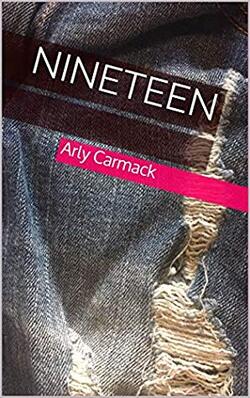 Your site hints that you have a follow-up to Nineteen in the works called Twenty-One set to be released this December. How has this been going? Thanks for asking! Twenty-One is complete and I’ve edited it twice. Now I’m working on a final edit and sending it off to a beta reader. Editing is an odd thing for me. I will procrastinate for a while, then I’ll get a huge chunk done. When you are so close to something, especially something that has taken five years to make, it’s hard to look at it objectively and slice out things that don’t bring any value to the characters or the story. But with Nineteen, I found that process to be satisfying when I got the end result, so I need to keep that in mind while I’m editing Twenty-One. As you've been working on this project, has the current version changed much since you've first started? Has anything surprised you about it as you've been writing it? In the original version of Nineteen, there were a few dumped storylines that delved more into Cameron’s connection to music and being a musician. The main purpose for my final edit of Twenty-One is to make sure I didn’t miss any references to things I ended up cutting. I also added a new character who was meant to be miserable, annoying, and a bit of an antagonist, but it took a turn and I ended up enjoying him tremendously. I’m hoping the readers will embrace him, too. He’s going to be a major player when the series wraps up. In addition to Twenty-One, you have several other projects in the works—including a novel, novella, and an untitled project. What helps you keep your momentum? Do you find yourself balancing several projects at once, or do you prefer to complete one before starting another? Being able to choose what you work on is the lovely thing about being an independent author. I can put something to bed for a while and work on whatever I’m feeling passionate about at that moment, or start something new. If I get bored with my writing, I just open another project and see if I’m feeling it. If I were a traditionally-published writer, I’d probably adopt a process of making outlines, creating timelines, and setting goals. I would have to be more efficient and methodical because I'd be answering to a publisher. For now, writing is my escape, so I don’t want to turn it into another thing to check off my to-do list. My violin teacher always tells me, “It’s a marathon, not a sprint,” so that’s going to be my motto for writing as well. It’s a journey and I don’t know exactly where I will end up. What is your experience writing first drafts like? Do you have any advice for fellow writers working through round one? I try to write the first draft like it’s going to be the final draft. The less I have to change later, the better. My first drafts seem to be about twenty to thirty thousand words heavier than they need to be, so most of the editing I do is eliminating redundancy, dropping dead plots, and making sure the voice of the project stays consistent. I think writing is like almost anything else. Do it your way, do what works for you, and if something doesn’t work for you don’t be afraid to change the process. Writing is an art and there is no right or wrong in art. When you have a story idea, at what point do you know what form it will take on? I’ll admit it – I’m a pantser! I don’t outline anything. For me, a story is like a little plant in my head. I water it, wait to see if it grows. Some ideas take a much longer time to grow than others. The story itself isn’t my main focus. Once I have a solid character, I can usually take off from there. My stories aren’t plot-driven, rather character and dialogue-driven, so it flows fairly well because I know what my characters are going to say and do. I just have to put them in situations. Then the characters and dialogue are driven by the situation, and it all works together. I start every project by getting to know the main character. For everything else, I fly by the seat of my pants. What appeals to you most about writing fiction? Satisfying my inherent need to understand people. I have an obsession with wanting to know what motivates people, and most of what I write is born from that. When you aren't writing, what are you up to? We have a great park system where I live, and I enjoy walking around and taking pictures with my vintage cameras. I like to develop some of my own film. I’ve been slowly purchasing darkroom equipment and am hoping to get that going soon. Aside from that, I like to go to thrift shops. That’s always fun. I’ve also been studying the violin for a little over a year. I have a wonderful teacher. Is there anything else you'd like readers to know? I appreciate their support and that they’ve taken the time to read my book. It means the world to me when I hear that someone has enjoyed it. There will definitely be more to come and I welcome their feedback. Pick up a copy of Nineteen here. Find Arly on Instagram and check out her website. Photo Credit: Arly Carmack R. J. Wade is a fiction writer and author of YA dystopian action adventure novel Aura. She also gives great interviews. Like this one.
First of all, congrats on the recent release of your novel, Aura. How have things been going? Thank you! It has been going well. It’s such a strange feeling when you’ve been working away on something for so long to finally put it out into the world - I felt sick with nerves the day before publication, knowing that my book would be landing on the Kindles of my friends and family the next morning! The response has been great though and I’ve had some wonderful reviews. Making time for marketing the book as well as writing the next one is taking some getting used to. I’m really having to battle with the social media time suck and trying to resist the urge to check my notifications every five minutes! Readers are already praising Aura for its "heart-stopping twists" and comment that they couldn't put it down. What devices do you like to employ/what helps you keep us guessing until the end? I’m a massive fan of Shawn Coyne and the Story Grid so I'd like to think that studying that methodology has helped. It's a really useful tool for plotting out scenes and making sure that each scene has a value shift to keep the story moving forward. I also like to keep my chapters quite short to keep readers wanting to read a little more... and a little more! Who are your influences? My favourite author is Max Barry. I love his take on things, his ideas and his sense of humour. I also love Michael Crichton, Suzanne Collins, Malorie Blackman, S.J. Watson, Scott Westerfeld and Blake Crouch. I’m a fan of thrillers, YA and sci-fi and I tend to read in those genres. What are your thoughts on the ebook revolution? How do you think going digital is changing the game for readers? Writers? I think for readers and writers, digital has made the route to entry so much easier. Writers can get their words out into the world with the push of a button and readers can discover more books and authors than ever before. Books aren’t cheap and it's much easier to take a punt on a new author with a free book or a book that costs a couple of dollars to download. On the flip side, it means there are so many more books out there and it is harder to make your book visible. I was in a band before being a writer so I know the blessings and curses of digital all too well! I think curation is going to become more and more important in the coming years. What's your process like? I’m a plotter! I started out writing into the dark or ‘pantsing’ as they say but I quickly ended up writing myself into a corner and getting really stuck. I discovered K. Weiland's books on outlining and structure and became a plotter from that point on. I have a pin board and index cards and I use those to put the skeleton of the story together. Once I have the outline it doesn't mean that it is set in stone though, and I do deviate and re-plot as new ideas emerge. I write with Scrivener and I like to write first thing on a morning so that no matter what happens during the rest of the day, I know my writing is done. I try to get at least an hour of writing done before I go to work. Do you begin a project with a theme in mind, or does it emerge for you as you go? The theme emerged as I went along. I definitely needed to get to the end of the first draft to work out what it was I was getting at! What do you think attracts readers to stories about Big Brother-type societies? On some level I think the constrictions and rules in these kind of societies mirror how we often feel in real life - especially when we're younger. We feel we're not in control, we're powerless, we're unable to express ourselves... When the downtrodden hero takes a stand and tears down the evil dystopian regime, it gives us hope that we can take control and have agency in our own lives. I also think people are just generally really interested in where all of this technology and surveillance is going as it encroaches ever more into our lives. Is there anything else you would like readers to know? I would like them to know that I am very grateful to them for reading this far and they can sign up for my mailing list and get a FREE Aura Extras PDF featuring juicy exclusive content right here: www.RJWadeBooks.com/extras Buy Aura here. Follow R. J. Wade on Instagram , Facebook, and Twitter. Patrick Canning is the author of two novels: The Colonel and the Bee and Cryptofauna. If you're looking for an adventure on every page with a cast of interesting characters--look no further! Readers praise Cryptofauna for its humor. To you, what’s the most important thing to keep in mind when writing humor? Do you prefer to build up to the joke or let the hilarity arise on its own?
Ideally, it would seem like the hilarity has arisen on its own, but hopefully it’s been crafted, and so a skill you can repeat. Forced humor (which, hopefully I’m not too guilty of) is definitely one of my least favorite things to come across in a book. It’s even somewhat mentioned in Cryptofauna: “Jim smiled politely. As was the case with many people, he’d always found the effort Oz employed to try and be funny was inversely related to how funny he was at any given moment. Humor was a cow on the railroad tracks or a catheter tube two sizes too big: trying to force it didn’t do anyone any favors.” Has publishing affected your writing process? Any advice/insights you could give to fellow writers? At the moment, I’m only self-published and indie-published, so I haven’t gone through the whole traditional publishing experience yet. I recently read some great advice from Henry Miller, so I’ll just pass that along in place of any ramblings I might have: “Cement a little every day, rather than add new fertilizers. Don’t be nervous. Work calmly, joyously, recklessly on whatever is in hand. Forget the books you want to write. Think only of the book you are writing.” All great stuff. In an interview you mention you came to novel writing through screenwriting. Are there any skills you picked up while screenwriting that have helped you in writing novels? A good carryover from screenwriting is the demand that every scene (and really every word) have a purpose. Since screenplays are only around 120 pages, every space on the page is precious real estate, which encourages writing that does a lot with a little. Novels can certainly be more atmospheric and take their time to some degree, but unless the style is challenging the rule intentionally, I think a general attitude of brevity, or at least efficiency, is always good advice, especially for newer writers. As a lover of movies, what are your top three favorite and why? Ooh, favorites are probably Rear Window, O Brother Where Art Thou?, and Heat. Those are three I can watch over and over again and only love more. Now I’m going to cheat and add more. Three empirically perfect movies: Silence of the Lambs, Spirited Away, Chinatown, and three that are too funny to leave out: Shaun of the Dead, Bad Santa, Wayne’s World. Lynda Berry once said, “We don’t create a fantasy world to escape reality, we create it to be able to stay.” What are your thoughts? Yes! Agree a billion percent (assuming I understand the quote anyway). The ability to escape reality is 100% essential for human life on Earth. People do it in a million different ways, and I think reading is one of the healthier and more rewarding options available. As a storyteller yourself, do you believe the art of telling a story is a gift or is it a skill that can be learned? This is a tough one. I think some people are more likely to be successful in certain fields, just based on innate talent. Will alone is probably enough to overcome any debt in natural ability, but would have to come with one hell of a focused goal and immaculate discipline. People seem to find success at the intersection of things they’re good at and things they enjoy. Plus hard work. So I guess it’s one of those confusing, triple intersections where there are lots of car accidents. Having said all that, I think practicing craft can improve absolutely anyone’s storytelling, no matter their starting point. So here it comes—what’s next for you? I have a domestic suspense novel that takes place in a Chicago suburb in the late 80’s, somewhat based on my own childhood. I’ve just started querying with that so I don’t know when it will be available, but hopefully months not years. Then I have three new books in various stages and a few shorts to finish up as well. I also have an upcoming dentist appointment so I’m off to floss, a.k.a. massacre my gums, so I can pretend I've been doing it all along. Is there anything you would like readers to know? I’m going to try and learn to cross-stitch so I can sew pictures of all the planets. If anyone has any tips, please let me know! Check him out on Instagram and find his site here! Photo Credit: Patrick Canning DK Marie's a voracious reader. Her number one love is romance and devours any and all of its genres, but also enjoys thrillers, horror, and non-fiction. Basically, if there are words on a page and a spectacular story, she's diving in, heart and soul. However, there's one thing she loves even more, and that's writing her own steamy contemporary romances. They're a mixture of heart, heat, and humor. Brimming with confident heroines and kind heroes, all living, loving, and lusting in and around her hometown of Detroit, Michigan. When not falling in love with her characters, DK Marie is laughing, relaxing, and planning her next adventure with her family. Okay, and also drinking boatloads of coffee, chatting on social media, and dreaming about her next travel destination. What was your first thought when you saw the cover for Fairy Tale Lies? First thought: Holy crap! This is real! I’m going to be a published author (and I may have done a little happy dance). Then I was filled with extreme satisfaction. My publisher, Champagne Book Group, asked for detailed information on what I like and dislike in a book cover. Also, the descriptions of the main characters. They took it all into account, right down to Jacob’s blue eyes. Needless to say, I was smitten with the cover. You've received a ton of praise on Goodreads and Amazon. Are you the kind of author to read about yourself online? How do you deal with criticism? I have read the reviews on Goodreads and Amazon. They are so important to an author, not only do they help with the algorithms within those sites, but they also assist readers in deciding if they're going to pick it up or not. So, I will check periodically to see my numbers. I will also use the reviews when posting on my social media accounts. You know, have a picture of my book along with a sentence from a review. Again, it shows possible readers that others, besides me, think Fairy Tale Lies is great. Depends on the criticism. Say, someone bashes my book because they don’t like how a character acted or the storyline, I brush it aside. Writing is art. We don’t all like the same painting or photos, so I don’t expect everyone to enjoy my style of writing. If it is from my editor or beta readers, I consider it very seriously and decide if changes need to be made. Do you ever feel vulnerable releasing steamy content to the public? I did more so at the start of my writing career. I had to push aside the whole “What would X think?” thoughts. If I didn’t, I would freeze up and not write as I wished, create the stories I wanted to read. Many people love steamy romances, me included, and I am writing for them. I remember this and push the rest aside. Now, since releasing my book and sharing my sensual poetry online, I’ve gained more confidence, and have the whole attitude: You don’t like it, don’t read it. Does your family read your writing? Some of them do, and some don’t, but all of them support my career. You said in your interview with Sam Hendricks (link below) that "love is found in the most unlikely places and doesn’t follow the pre-conceived notion that women were taught as little girls reading and watching Disney fairy tales." What would you say truly separates real life love from the Disney stories? http://sjhendricks.com/indie-author-series/an-interview-with-author-d-k-marie Real life is way more difficult. Lol. In all seriousness, I was referring to the older Disney fairy tales, where the women were passive, always waiting for a prince to save them. Even as a kid, I scoffed at this. I wanted to save myself. To be independent. I wanted to love a man for him and not what he could give me. Most girls and women today don’t want their power and happiness to be provided or obtained by a man. The woman I write for are the ones that want to find all this on their own, and fall in love with a man that enriches their life but doesn’t rule it. Anyway, recent Disney fairy tales are getting better. They have stronger female leads and more ethnicity, and the guy is part of the team. The man and woman are in charge of their Happily-Ever-Afters. What is your favorite part of the creative process? I love it when the first draft is done. I no longer have to worry if I’ll finish the story or how long it will take. Instead, I get to read through it all, find what works and doesn’t, along with adding in the details that layer and enrich the story. My favorite part writing each story is writing the dialogue and chemistry growing and igniting between the main characters. Do you prefer writing poetry or prose? Depends. On Twitter and Instagram, I prefer poetry over prose. I have friends that are fantastic with prose and flash-fiction, I struggle with it. Whereas, the words flow easier with poetry. This always surprises me because I’ve only been writing it for about a year. Plus, I find poetry has improved me as a writer, has helped me insert more emotion in my stories. What was the greater challenge? Establishing your story with Fairy Tale Lies or continuing it with the sequel? Definitely establishing Fairy Tale Lies. As I write each story, secondary characters begin shouting at me to have their story told, so I tell them. When it is their turn, I'm not starting from scratch, as I did with Jacob and Greta. In the books that follow, I already know a little bit about them, including a few of their wounds and flaws (which are both so important when writing character-driven stories). I am scheduled to write four books for this series, but two more characters are whispering for me to tell their story. We shall see if I tell them. Your about me mentions an appreciation of theater. What are some of the best shows you've seen? I am fortunate and have been ushering at a theater in Detroit for the last three years, so I’ve seen a lot of shows. My top five would be: Phantom of the Opera (this is the first show I ever saw, back when I was a teenager, and it began my love affair with the theaters) Hamilton The Curious Incident of the Dog in the Night Kinky Boots Book of Mormon dThanks again to DK Marie for the awesome answers! Do yourself a favor and visit the following links below:
Her Official Website: https://dkmarie.com/ Amazon: https://www.amazon.com/Fairy-Tale-Lies-Opposites-Attract-ebook/dp/B07RGKLCQQ Twitter: https://twitter.com/dkmarie2216s?lang=en Her Publisher, Champagne Book Group: http://champagnebooks.com/store/content/category/1-home Check out our page on Fairy Tale Lies for the Juniper Grove Book Tour! https://www.longshotbooks.com/juniper-grove-book-tour/fairy-tale-lies-by-dk-marie-blitz Matt Horton is a fiction writer and author of the several books, including the Donovan Chase series, Missing Person, Warsaw, He's All That, and Legend of Prosperity Ranch. He also gives great interviews, like the one below:
What keeps me going is the true belief that I can and I should, even if nobody else believes in me. My vision is large and, at times, it seems that most people don’t understand that because they don’t know how much work it takes to be a writer. Being a writer is one of the loneliest, most dejecting “professions” unless you’re in the 1% that gets recognition for it. But you HAVE to keep writing. Keep talking. Keep sharing. Writing is something that I feel I have to do, even if I’m never famous or if it never becomes my primary source of income. I’m doing what I love so I’m living the dream. On Facebook you've hinted that you're working on the fourth book in your Donovan Chase series. How has that been going? Care to share any details? The fourth book has been slow. I’m working on several projects at the same time. There’s one original project called A Silent War which deals with domestic violence, and I’m working on the sequel to another original book (Warsaw) as well as the origin of one of the characters from the Donovan Chase series. That one is Blackhawk, which I referred to before. I’m a perfectionist, so I want anything that I put out there to be perfect, so the fourth may take a while but I’m really excited about the direction that it’s heading so far! You've published at least ten books so far, which is incredible. When you're working on a project, what's your schedule like? I’ve actually only done seven (I have a few which are only different formats but show on my page separately, which is unfortunate, but I don’t have much control over linking them. Amazon has been a HUGE learning process). But yes, it feels amazing to have my books out there. When I’m working on a project, it can be chaotic, especially when I’m editing. I read everything over and over and over (and over) again. I work full time, I’m married, and a college student, so life is pretty hectic. But the thing is, you MAKE time for it. Sometimes writing inspiration can be hard to find (it took me six months on War Thr3e), or perhaps you’ve written yourself into a corner, but when it flows, you run with it, and generally just hope what you’re putting out there isn’t complete crap. I’m joking (mostly); I do feel like I have an idea of when something is good, though, because I know what types of stories I’d like to read. Who are some of your influences? What have you read that has impacted you as a writer? Ted Dekker. I LOVE his writing style. He was the one that inspired me to write. Actually, that’s wrong. I have a friend who is a screenplay writer and we’d send each other things back and forth over the years. I think I tried my hand at a screenplay first but then realized that it wasn’t good. But Ted Dekker’s style, man, and the way he contrasted light and darkness... killer. I always, always use the things that I write about to tell important truths, to show right vs. wrong (which some may argue because we all have different worldviews). I think it is a good platform to do so, but to do it in a fun, positive way while telling a story. I’m currently reading Thr3e by Dekker and I think that he is a great role model for Christian writers like myself. I also love Marie Lu. Her Legend series is AMAZING. She makes it seem so simplistic and you can just get lost in the worlds she’s created, I aspire to be like that. I’m working on the third book in the series currently. On your Goodreads, you mention were working on spinoffs and origin stories. How did you go about choosing which character backstories you wanted to elaborate on? Did any of them surprise you? Honestly, my sphere of projects I take on changes constantly. I have a very distant vision of a spin-off for a Donovan Chase character, but with the direction I’m going on the fourth installment, it might end up being better to tell it there. As far as the origin stories, the two I have in mind so far are... The Legend of Prosperity Ranch (originally titled The Devil Lived Here), which I wrote right after Blackhawk. This one was loosely based on an experience I had in a boys’ rehab program in the mountains of Mexico when I was sixteen. I revised it to tell the story from the perspective of the two main characters, Mac Brenner and Maddox Hill (who is also a main character in Donovan Chase: Sandstorm and Exodus). The latter, I’ve already mentioned, Blackhawk, is the origin story is Deacon Fox and Gunnar Styles (who is in Exodus as well). I think it’s SO much fun, though! I’m able to reference these stories in the series, so if you’re reading them, you’ll have an idea of what to expect and where each character came from, so there’s no surprise. That way, also, I’m not “wasting” any project I’ve done that I believe has potential. It’s also a really good way to judge how far I’ve come as a writer. Blackhawk, I’m COMPLETELY not sure about currently but I’m in the process of re-writing it to see if it is good enough to put out there. So, we’ll see what happens. What are some of your favorite spinoffs? Hmmm... I honestly can’t think of any off the top of my head (sorry!) but I think of spin-off stories like movies, like Aquaman, or something. I think that they can either be well done (in cinema or in writing), or they can be TERRIBLE. That’s part of the reason why I’ve been a little stagnant in putting them out there. I want them to be done well and I want readers to enjoy what they’re reading. If I can bring someone to the point where they forget reality for even a few minutes, or perhaps, it causes them to think deeply on the important issues of life, I believe I’ve done my job. What do you believe attracts readers to dystopian fiction? What do you think attracts writers? My gosh. I think it is the complete open horizon of possibility there. I like it because it allows me to stretch my imagination beyond what may really be possible or what could happen. I think readers like heroes and villains and dystopian usually involves both, and they’re generally just fun stories to read. I think authors are attracted to it for two reasons. 1) People want to read them, and 2) they’re fun to write! For me, the Donovan Chase series was such a progression. Yes, there are elements of mind reading (or eye reading) in the first book and there’s some telekinesis (which I really don’t believe in, but was fun to write about), but I generally tried to keep it in the realm of what COULD actually happen (in America, and then the world)? Exodus was by far the most fun to write because I didn’t have limits. World War 3 already happened. The government is already corrupt. So what’s next? Donovan Chase is brainwashed and the face of a rebel movement. Obviously. ;) And it deals a bit with Biblical end times events, so it was very cool to be able to incorporate that in as a way of interjecting my faith into it (though I do that in everything I write, honestly). For me, it’s just pure creativity. 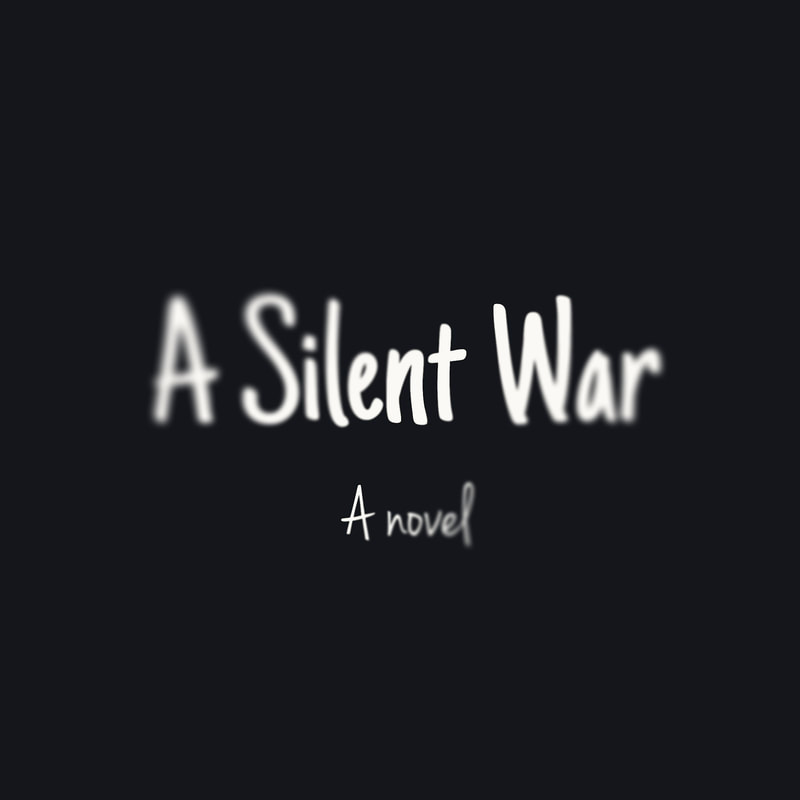 Is there anything else you would like readers to know? Honestly, just that it is a grueling, rewarding, beautiful process and I don’t know if that’s often appreciated. I don’t think people often recognize your work until you get big. Social media, especially, can be the worst, and I’m thankful that I don’t base my self worth on what I write, what people think about what I post on social media about it (or how much), or how many likes a post will get on Facebook. In the end, it’s about what I love to do, the stories I want to tell, and (hopefully) the impact that it might have on another person. Missing Person was my first foray into the subject of child abductions and I even was able to start a small fundraiser for the National Center for Missing & Exploited Children in the process, and it has been such a good, simple way to tell a story in a delicate way about a very serious issue and to shed light on some of the darkness in this world. Child abductions and sex trafficking are very real issues and they are subjects that I am very passionate about, aside from writing. This is reality for a LOT of people in this world and it is heartbreaking. I did a lot of research in writing this and some of these stories are just horrific. My current writing project (A Silent War) deals with domestic violence, and will most likely be released next year some time. I’ve discovered, though, in regards to social media (yes, that was quite the rabbit hole), you have to be on it; that’s why I rejoined Instagram after a seven month hiatus. You simply have to keep talking, keep promoting your work, and the cool thing is that there are SO many supportive, like minded people on there (IG) who really help and encourage you along the way! I’ve, honestly, near given up on Facebook about my writing because I honestly believe that people would rather see memes, GIFs, and inspirational quotes (and that’s okay! Facebook isn’t what it was in 2007 when I joined it). All in all, social media is a necessary evil (haha), but I’ve found it can also be a good thing. Last thing... reviews or star ⭐️ ⭐️ ⭐️ ratings on Amazon are CRUCIAL. If you’re a reader, and you’ve read a book, do the author a solid and give them a rating. Find Matt Horton's books here. Follow Matt on Facebook and Instagram! “DAVID MOODY first self-published HATER in 2006, and without an agent, succeeded in selling the film rights for the novel to Mark Johnson (producer, Breaking Bad) and Guillermo Del Toro (director, The Shape of Water, Pan’s Labyrinth). His seminal zombie novel AUTUMN was made into an (admittedly terrible) movie starring Dexter Fletcher and David Carradine. Moody has a unhealthy fascination with the end of the world and likes to write books about ordinary folks going through absolute hell. With the publication of a new series of Hater stories, Moody is poised to further his reputation as a writer of suspense-laced SF/horror, and “farther out” genre books of all description. Find out more about his work at www.davidmoody.net and www.infectedbooks.co.uk." -Taken from his site. A favorite theme of yours is the end of the world. How do you think you would fare in an apocalypse scenario? I’d like to think pretty well, but then I guess we all naively think the same, don’t we? The reality of the apocalypse will inevitably be very different to the romanticised, filtered and toned-down version we spend so long watching, reading, writing and dreaming about. Tell you the truth, my apocalypse survival plan is very dull, but I think it’ll do the trick. Step one – watch what everyone else is doing, then do the opposite. If there’s one thing being an end-of-the-world obsessive has taught me, it’s that it’s usually other survivors who’ll kill you. Step two – hunker down for about six months. I reckon if you can a). find yourself a bunker or safe space somewhere, b). stockpile enough supplies to see you through a couple of hundred days, and c). manage not to go insane because of the worry and isolation etc., then you should be okay. What kind of world you find yourself returning to though is anyone’s guess. How did you feel when you decided to put Autumn out yourself for free? I really had no idea if anyone was going to find it. I need to say at the outset that this was 2001, and both the internet and publishing were very different places back then. For example, eBooks were only just beginning to be thought about... there was a huge number of different formats beginning to emerge, and each had its own supporters. I think at one point I made Autumn available in 20+ different formats (pre-Kindle, most downloads were Word, pdf and Microsoft Reader, for any nerds who are interested). The story behind offering the free download was that I’d released my first novel (Straight to You), and it had sunk without trace. When it came to releasing my next book, my key goal was to get it into the hands of as many readers as possible, so giving it away for free seemed to be a logical way of doing that. Bear in mind that back then, giving a novel away was a pretty unique idea. These days most people’s Kindles seem full of freebies that no one ever reads. I think I was lucky – I hit the market at the right time with a decent book, and it took off. I had around half a million downloads in a relatively short period of time, which led to a series of sequels, an audio adaptation and the movie. It was still a real leap of faith, though. I justified it to myself by thinking I could either start sending the book to editors, one at a time, or I could just give it to everyone at once! How does it feel having an "admittedly terrible" film adaptation out there? Someone said to me right at the beginning of the process that having a terrible film made of your book is better than having no film made at all. And they were right, I guess. The people behind the Autumn movie approached the project with a huge amount of passion, and they pulled together a good cast (Dexter Fletcher and David Carradine starred). Unfortunately, budgetary and technical limitations really compromised the end result, and the director was a little overambitious – he wanted to make a deep, thoughtful and moving horror film, whilst the audience and marketing people were just looking for another zombie flick. If you know the book, you’ll probably enjoy the film. If you’ve not read the book, you might be scratching your head in places. Ultimately, I’m glad it was made. I got to spend a week in Canada on set and star as a zombie. I re-watched it a while ago and my thoughts are here: http://bit.ly/32Er7q4 My greatest ambition remains to make a bug-budget TV adaptation of the entire Autumn series. That would be phenomenal. What was it like to then have names like Mark Johnson and Guillermo Del Toro associated with your work? Incredibly exciting and absolutely terrifying at the same time! Having del Toro attached in particular immediately kick-started my professional writing career and gave me the kind of exposure and sales I’d only been able to dream about before. All these years later I still have to pinch myself – I have no idea how these people found my work, but I’m so glad they did. It’s a shame that the del Toro movie stalled, because it would have been fascinating to see what he did with the Hater premise. I’m now working with another team on the movie, and I’m very excited. The script is excellent and now it’s a question of trying to get the project off the drawing board and in front of the cameras. Do you find it more challenging to write the first in a series or a sequel? That’s a great question! I think it varies project by project. In many ways, every book can be a challenge to write. With a series, if you’ve planned the whole series arc out, then there’s a lot of pressure to get it right with book one and make it a success, otherwise you’re struggling to move forward on uneven foundations, as well as potentially struggling to find a decent-sized audience for what’s to follow. I have a couple of series I’m working on now which I’ve planned right through, and it’s proving hard to juggle all the details – I want to sow the seeds of what’s going to happen in the first book, but without giving too much information away. Conversely, with a series like Autumn where the story grew organically over the course of a decade, the further you get into the story, the more the pressure can increase. It’s vital that if you’ve written a series that a large readership has enjoyed and invested their time and emotion into, you have to give them the satisfying conclusion they deserve. How do you think the literary landscape has changed since you released Straight to You? Without question it’s barely recognisable. I think the internet is what we have to both thank and blame for that! It’s changed almost every aspect of our life immeasurably in the time since I wrote and released the first version of Straight to You in 1996 (I rewrote it 20 years later... loved the story still, but I hated my youthful and inexperienced writing). Looking back at my earlier stories, it’s quite startling how insular we used to be back in the days before the internet. If the world started falling apart, all we could do would be to look outside and see what was happening in our immediate neighbourhood – there was no question of checking social media to see what was happening anywhere else in the world. That shift of focus has inevitably shaped a lot of fiction. It’s also thrown up a new dichotomy – now we’re so used to being connected to everyone and everything else, what happens when that connection is severed? I think that’s a fascinating premise. Another internet-led shift has been the availability of entertainment on demand. You can now download pretty much anything at any time. That’s led to niche topics of interest finding their way into the mainstream (zombies being a case in point). It’s made it easier to get your work out there, but infinitely harder to get noticed. What are you reading right now? Right now I’m reading a number of different books, both new releases and classics. I recently finished Guillermo del Toro and Claudia Funke’s adaptation of Pan’s Labyrinth, which was a book I loved, even though I wasn’t sure when I picked it up – a novelisation of a classic film from a decade ago? It turned out to be an excellent novel. The film’s about how an innocent child deals with the horrors of war, and the impact of the story is somehow even more powerful in written form. I’m currently reading my friend Craig DiLouie’s forthcoming novel, Our War, and it’s proving to be an uncomfortable read – very prophetic. I also mentioned the classics. I re-read my favourite novel earlier this year, The Day of the Triffids by John Wyndham, and I’ve been working my way through some of his other novels such as The Kraken Wakes. I recently compiled a list of well-regarded post-apocalyptic novels I’ve not yet read, and I’ll be taking a pile of them on holiday with me later this year. My wife and I are going on a cruise around Norway, and no romantic holiday for two is complete without a heap of dystopian novels, is it? That’s what I tell her, anyway! If you could recommend one of your books to someone who was unfamiliar with your work, which would you choose? I’d have to say Hater, because it’s my most famous title and I think it’s also the most accessible. It’s quite a high concept book, actually, but I tried to write it in a very grounded way and because of that it appeals to quite a broad audience. Ultimately, it’s a zombie story told from a new perspective, but the zombies aren’t zombies, and although you think you know who’s who, all that changes when . . . wait. I’m not going to say anymore. I don’t want to give the game away. If you’ve not read any of my books, please pick up a copy. In your list of recommended movies, you included Paddington 2. What are the chances of a David Moody release geared towards younger audiences? I have a YA novel in the vaults about a young lad and his pet Kaiju. I wrote it a few years back and though I was happy with it at the time, both my agent and I agreed there was something missing. I think I know what that is now, so it’s just a question of finding the time to go back and work on the manuscript again. It’ll happen, I just don’t know when. I’m very keen for the book to see the light of day though. Imagine Paddington meets Godzilla meets Kes and you’ll be somewhere near. It’s definitely an odd one. I would love to write more for younger audiences, though, and it’s certainly in my long-term plan to do so. How important do you think a well-designed website is for an author today? I think it’s vital, and I’m surprised how few authors have a comprehensive site these days. Social media is all well and good, but I think you need a single online space where readers can find out everything they need to know about you – full details about (and links to buy) all of your books, a biography, recommendations, recent news, FAQs etc. I invest a lot of time in my site, and over the years it’s paid dividends. I do use social media a lot, but I tend to use it to direct people over to www.davidmoody.net! If you could boil your bibliography down to one moral principle that defines the ethics of your books, what would it be? I’m a realist, and I believe the human race is hardwired to destroy itself. Society is tragically flawed because, no matter what we might say to the contrary, we’re all pre-programmed to protect ourselves and our loved ones at the expense of everyone else. Sorry – I know how grim and depressing that might sound, but I believe it’s true! My books are typically about that conflict – do we save society, or do we save ourselves? If you think I’m just a miserable bugger, stop and ask yourself what you’d do. What was the hardest creative choice for you to make as an author? That’s another interesting question, and I’ve got a couple of answers to this. First, a story might not always work out the way you’d hoped. Sometimes you can steer a project down the wrong route, other times you might not yet be ready to write it. I know that’s been the case with me before: I’ve started writing something then abandoned it for many years, before picking it up again much further down the line. Straight to You was a perfect case in point – the version I wrote in 2014 was far superior than the 1996 original, because in the 18 or so years between versions I’d got married, had kids, bought a house etc. All those experiences added so much weight to the characters in the novel. You need to be able to accept when you’ve taken a piece of writing in the wrong direction. Interestingly, and this the truth, I’ve been planning a 5 book horror/science-fiction series called The Spaces Between for years, but I know I can’t write it until I know what’s going on with Brexit...! The second point I’d make here is that your gut feeling is usually the right option. If you’re writing something and your instinct tells you to take the story in a certain direction, follow that instinct. It might make it harder to write, but chances are it’ll benefit your story in the long run. I think I might just have contradicted myself with this answer, but I think that shows how deceptively difficult writing can be (Brace yourself, obvious question incoming...) What can we expect for you in the future?
Right now I’m working on a novel called Was She Ever There? which is a bit of a departure from what I’ve written previously. My books are quite niche, and this is my attempt to take my brand of weirdness into the mainstream! After that I’m going to be working on a collaboration with two authors from the US, before starting work on a new series of Autumn novels (two or three – not sure yet). After that, assuming Brexit is resolved one way or another, I’ll finally start work on The Spaces Between! Robert Walicki’s work has appeared in over 50 journals, including Pittsburgh City Paper, Fourth River,Chiron Review, and Red River Review. A Pushcart and a Best of The Net nominee, Robert has published two chapbooks: A Room Full of Trees (Red Bird Chapbooks, 2014) and The Almost Sound of Snow Falling (Night Ballet Press), which was nominated to the 2016 List of Books for New York City’s Poets House. His first full-length collection, Black Angels, is now available from Pittsburgh’s Six Gallery Press. What was the moment that made you realize that writing was more than just a hobby for you? I think when the level of my writing grew to the point where I felt it was good enough to submit to publications.Also, when the desire to write shifted from needing to write made me realize that this was a vocation. How great of a challenge is it for you to put together a monthly reading series with Versify? Since Versify as a series concluded, I can say that it's been one of my most proudest achievements, that said, it's much less challenging putting together a series in a city that's bursting with literary talent as Pittsburgh is. I had two goals in this series. One, was to provide a forum for everyone. I never wanted anyone to feel marginalized in the literary community. Second, I wanted to put together readers who organically generated a synergy, whether they complimented or contrasted each other, and I like to think to that end,I was successful. How would you say your work as a plumber has influenced your writing? It was difficult for me to write about these experiences at first, because I couldn't wrap my head around the concept of creating a poetic language for these "common" experiences. That said, I eventually realized that this was something that I needed to be writing about. My working life has shaped who I am in more ways than even I realized at the time. It's been a challenge too, in striking the balance between the musicality of language vs the authentic working class language that needs to be present, for these poems to ring true, be earned and yet still feel like a poem. How would you describe your performance style to someone who has never seen you read? I've worked at this, because I'm an introvert by nature, but I'd have to say that my performances tend to be emotional. I like there to be somewhat of narrative arc to my reading I want to be fulfilling and hopefully have a little something for everybody. What movie can you throw on any day of the week? Oh man, it would probably be Star Wars. I'm still an overgrown kid at heart. And I still love Sci-Fi/fantasy. I love escaping into a movie adventuring into a different world. Has healthy competition like entering in Concrete Wolf Chapbook Contest affected your approach to writing in any way? Competitions can affect one in positive and negative ways. I approach it with a grain of salt. What I know is, that we can't look to competitions to validate our worth, as so many factors that have nothing to do with our talent, go into whether a piece is accepted or rejected. That said, I've found that preparing a piece for a competition really pushes me to polish my writing and pay attention to editing. Of any living writers, who would your dream line-up to perform with consist of? Wow, I would love to read with someone like Dorianne Laux , Ellen Bass,Natalie Diaz, Jan Beatty, Heather McNaugher. There are so many more, although these poets have been quiet mentors throughout much of my writing life, in so many inspiring ways. What goes into the title of one of your books? I struggle with titles, but when I find one, I know it when I see it. My most recent book for example, "Black Angels " came originally from a Velvet Underground song, and like the title poem, which was originally called Angel of Death. A title I believe, needs to both inform and create a sense of mystery and restraint in telling the reader what a poem is about. I like to leave that revelation up to the reader though, let them decide what it means for them. Is Fellini's pizza a real place or an homage to the filmmaker? It's a real place,but kind of a happy accident as well. I've noticed a minor trend of Lego references in your work. Any particular reason for that? Interesting. Sometimes we aren't aware of elements that tend to be fixated on or write about a lot, but I always like to include tactile, grounded elements in my poems that can act as metaphors or simple imagery that creates a strong sense of place and time. What can we expect from you in the future?
Well, I have another full length poetry collection called "Fountain ", which was just accepted by Main St Rag Press, so I'm excited about seeing that in print in the near future! Thanks again to Robert Walicki for agreeing to do this interview and for his awesome answers. Please do yourself a favor and check him out at the following links: Red Bird Chapbooks: https://www.redbirdchapbooks.com/RobertWalicki Facebook: https://www.facebook.com/robertwalickipoet/ Amazon:https://www.amazon.com/s?i=stripbooks&rh=p_27%3ARobert+Walicki&s=relevancerank&text=Robert+Walicki&ref=dp_byline_sr_book_1 Twitter: https://twitter.com/walicki_robert Sarah Lynn Novak is the author of YA novels Smacked and Voices. She also has two poetry collections, This One's for you: Quotes and Poems for Different Situations and Through The Cracks: Short poems written from a dark place. 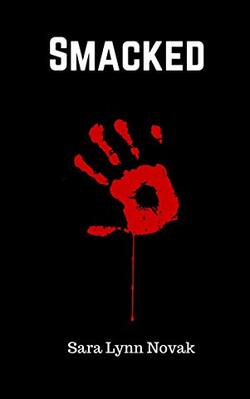 Your bio states you're working on a new project titled “Triggered.” How has that been going? Really well! I slightly tweaked the plot and the motive behind the anonymous antagonist "The Deliverer" so all the loopholes have fallen into place. No specific deadline yet but definitely want to have a first full draft completed by the end of the year. Which form did you begin writing first, poetry or fiction? On the first draft, do you generally know what form it will take, or do you find that it crosses over? Fiction. I was reading a ton of R.L. Stine books when I was 11 and loved all of his fun plot twists. So one day I just thought to myself, "I want to try this" and I wrote an awful short horror story about a haunted house. On first drafts in fiction, I always know what form it will take from the beginning (usually first person narrative). In poetry, I sometimes transition between rhyming and free verse depending on the tone of the poem. As a poet, how important is accessibility of meaning to you? How do you balance making demands on readers with taking care of them? It's hard because I know not everyone understands poetry and that's ok! But I feel like my poems are pretty easy to follow and I try to keep them short but still powerful. As for fiction, that's an entirely different challenge to balance what I want from the readers vs. what they want from me. My stories tend to walk a tightrope of inspirational and unsettling. I want the readers to feel everything but I don't want to completely bum them out either after they finish the book. What's your schedule like when you're writing? What keeps you on track? I mostly write in bursts when the mood strikes or a dialogue comes to mind. I don't really believe in word count or anything like that but I have lately made an effort to keep myself in the mood for longer periods of time. I'll listen to certain songs or watch certain tv shows/movies of the same genre to keep it in my head. To me, Smacked and Voices seem to be very character-driven works, where the perceptions and reactions of the characters carry the story. How much time do you spend on developing characters? Did any of them surprise you on how much of the heavy lifting they could do? I started writing Smacked when I was 17 so both of the main characters were developed from parts of myself. More-so, the character Juliana because we were both starting a new school in our senior year and struggling through a first bout of depression. Locke was developed more from observing other people in my life, imagination, and some very loosely related parts of myself. In Voices, Skye and Randy were created more from imagination, empathy, and twisted fun. The one character that surprised me was Ivy from Voices who started out as a minor antagonist to Skye. As the story progressed, I ended up finding a way to tie her to both Randy and Skye in a way that i hadn't known until the middle of writing. I also feel that she developed into somewhat of an antihero but I'll say no more. 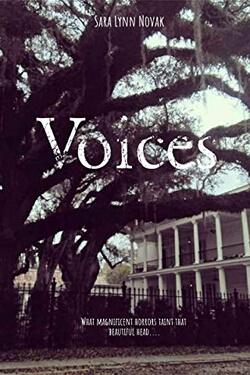 In your opinion, what is the most important thing to keep in mind when writing YA? Teenagers are the hardest audience to keep interest and relevancy, especially in today's rapidly changing times. I think the most important thing is to be more empathetic to their way of thinking and their behavior, rather than be critical. And of course, remember that times are much different than when I was a teenager so it's not always a fair comparison. Many readers comment that they deeply and meaningfully connect with your work. Do you have any advice for fellow writers on connecting with their audience? Just don't be afraid to get personal. I've dealt with chronic depression off and on for a while and it often plays a big role in many of my books but the readers seem to relate to that the most, so I don't mind sharing it anymore. Is there anything else you'd like readers to know?
Much of my content is quite dark but I never intend to glorify any of that. We live in society that is constantly telling us "Good vibes only!" and yet treating depression and anxiety as an aesthetic rather than an actual human struggle. People aren't getting a realistic sense of emotion anymore. I think it's important that we confront all emotions, good and bad, rather than masking them in endless false happiness or even worse, glamorization. I just want my readers to be more in touch with their internal selves, whether it's negative or positive, so that they have a better grip on how to cope with the bad emotions. Check out Sarah's website here. Follow her on Twitter, and Instagram! Photo Credit: Sarah Lynn Novak |

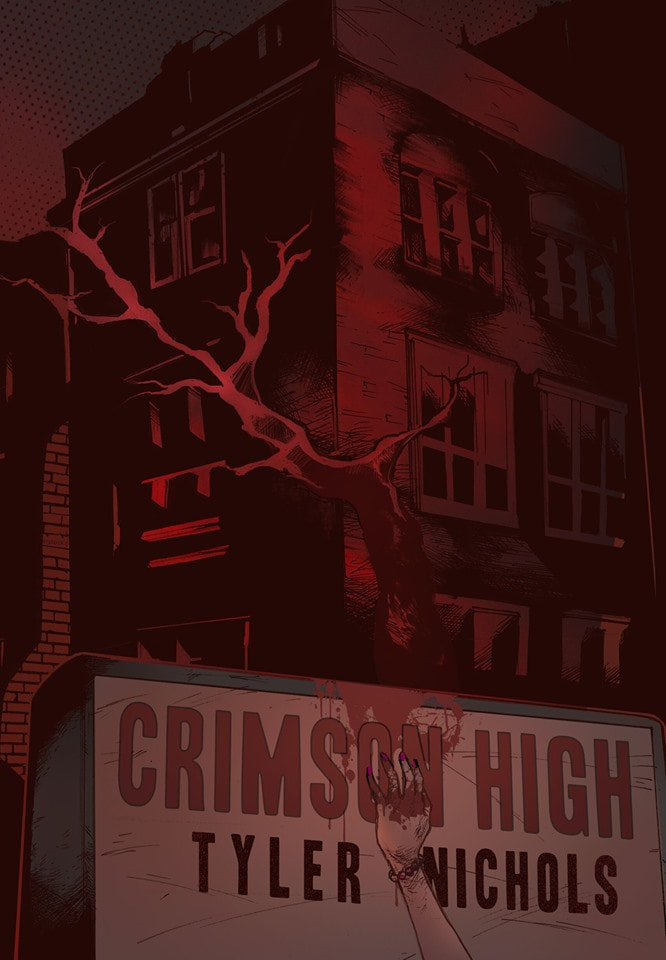
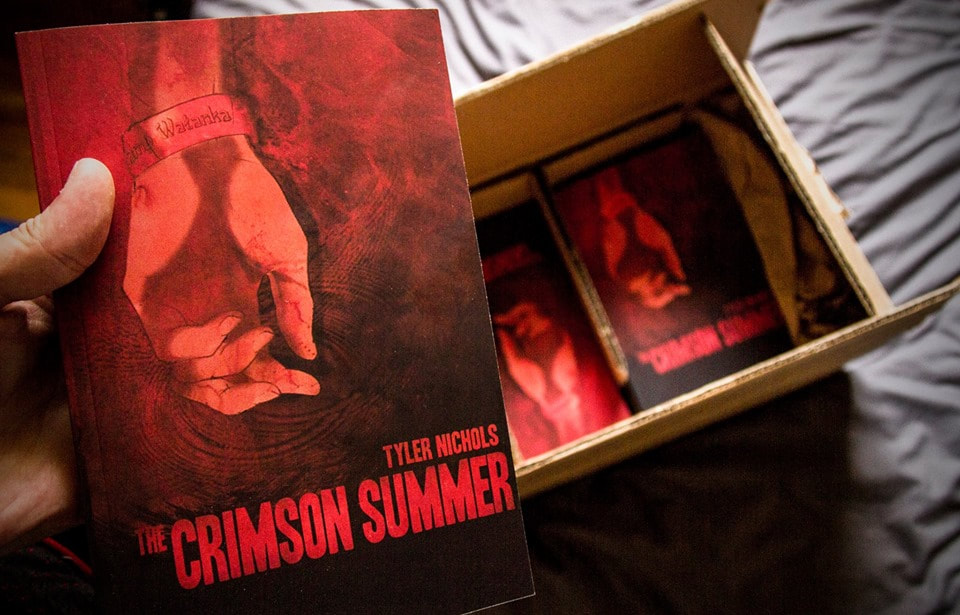
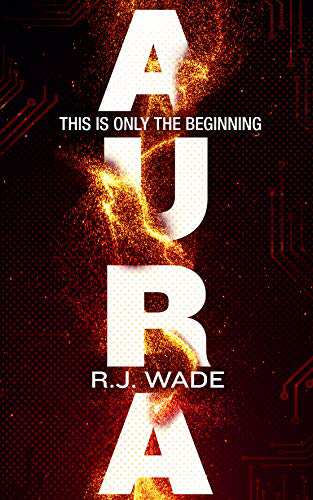
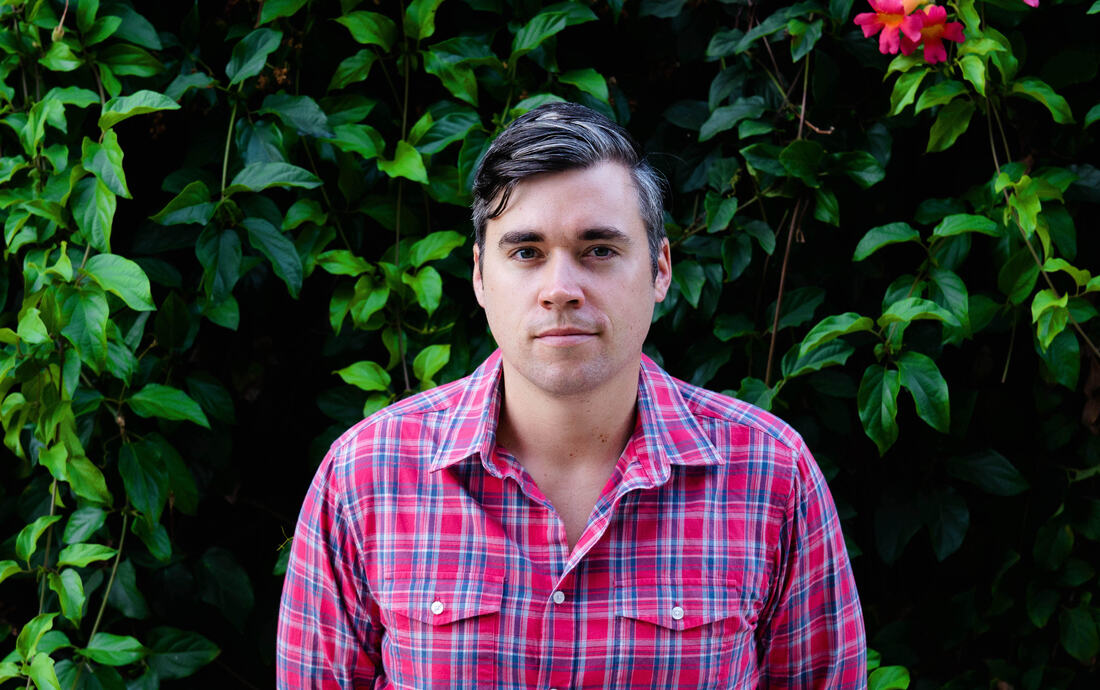
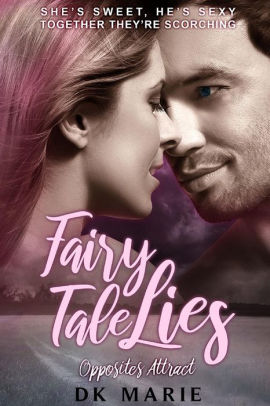
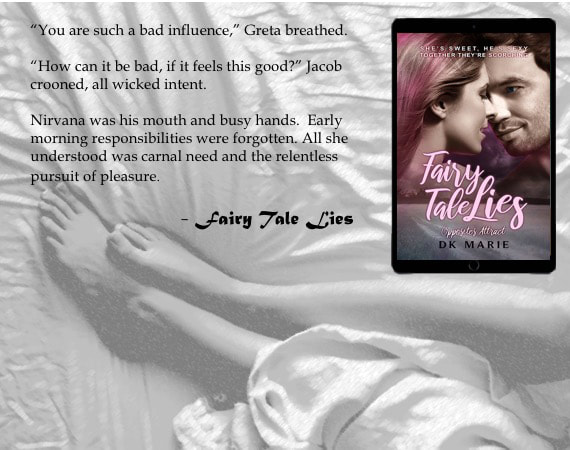
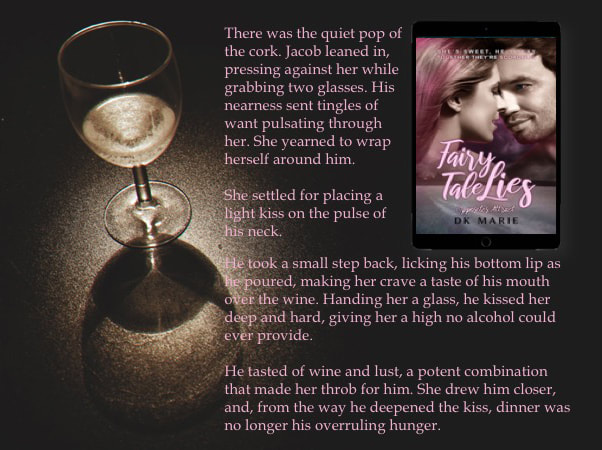
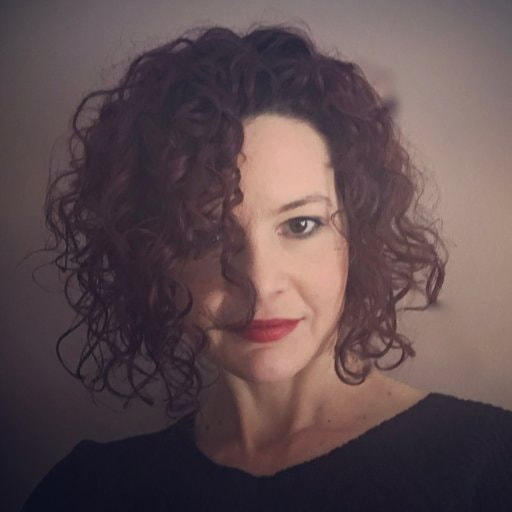
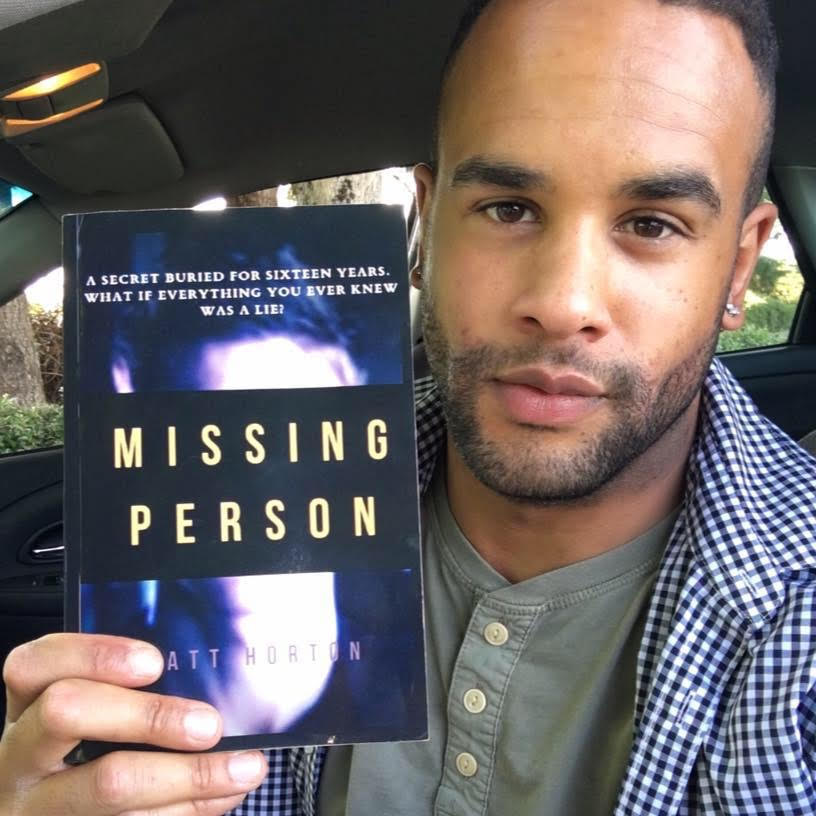
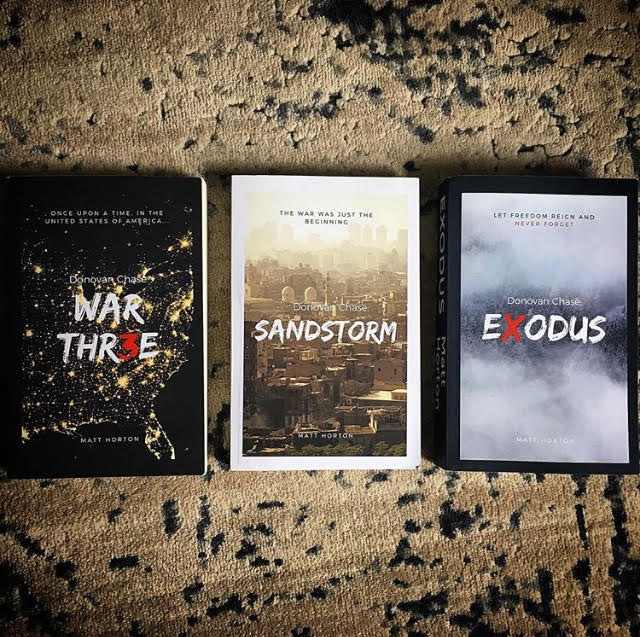
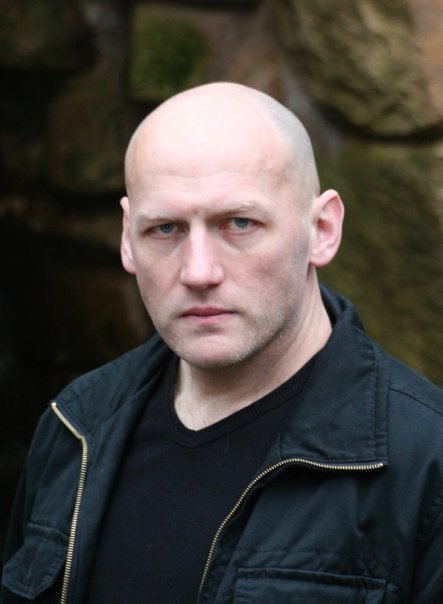
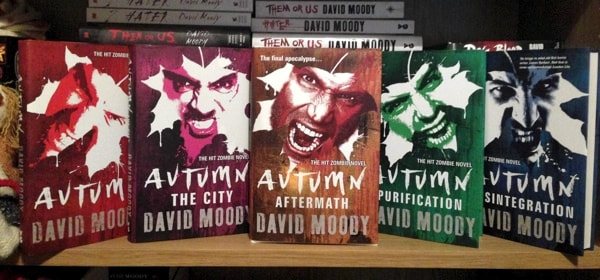
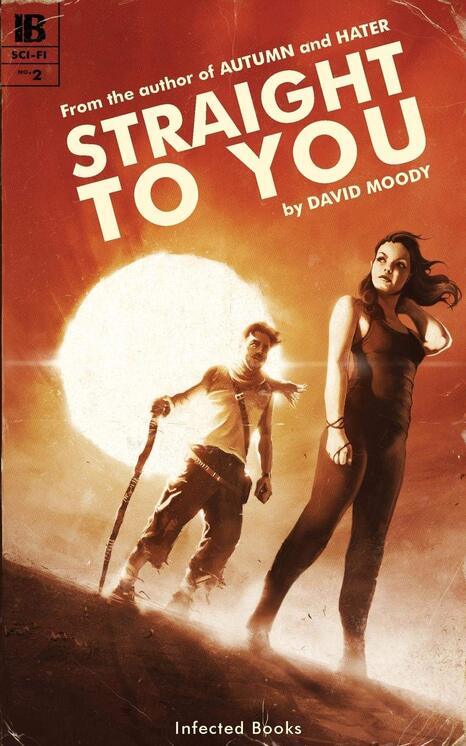
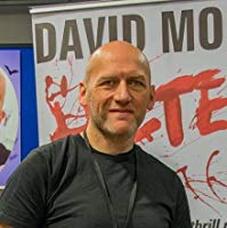
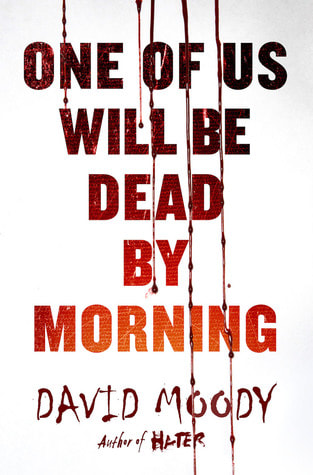
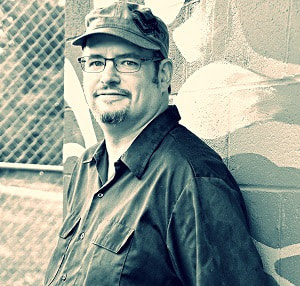
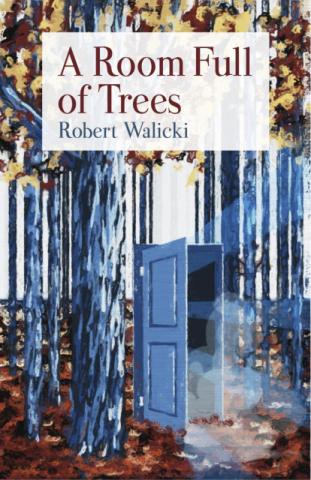
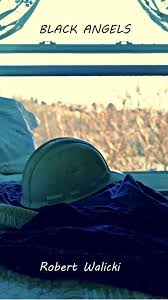
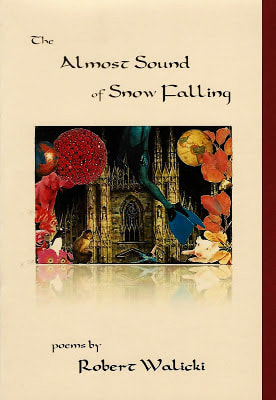
 RSS Feed
RSS Feed